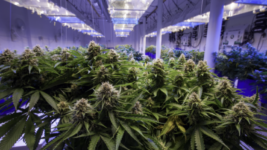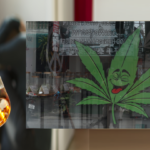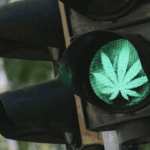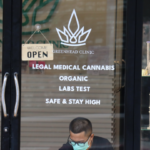Your Guide to New South Wales Cannabis Laws

Cannabis is Australia’s most widely consumed prohibited drug – used for recreational and medicinal purposes alike.
But it is important to be aware that, despite decades of calls for the plant to be legalised, its importation, cultivation, supply and even possession continue to carry serious criminal consequences.
Here is an outline of the various ways ‘the devil’s lettuce’ is criminalised in New South Wales.
What Is Cannabis?
Cannabis is a genus of flowering plants in the family Cannabaceae.
Cannabis plants have been used for medicinal and recreational purposes for thousands of years.
The plant contains a group of chemical compounds called cannabinoids, with the most well-known ones being tetrahydrocannabinol (THC) and cannabidiol (CBD).
THC is the primary psychoactive compound in cannabis, responsible for the “high” or intoxicating effects that some people experience when using cannabis. CBD is used for its medicinal effects and does not produce the “high” sought after with recreational use.
Both THC and CBD have various potential therapeutic effects and can interact with the body’s endocannabinoid system, which plays a role in regulating many physiological functions.
Cannabis can be consumed in different forms, including smoking the dried flowers (buds) of the plant, vaporizing the plant material or extracts, or consuming it orally through edibles or beverages. It can also be used topically in the form of creams, oils, or patches.
‘Hashish’ is a highly concentrated form of cannabis made by compressing and processing the flowering parts of the cannabis plant. Other concentrated forms of cannabis derivatives include ‘shatter’, ‘wax’ and ‘budder’.
According to the latest national statistics, around one-third of Australians have used cannabis in their lifetime, with around 11.6% having consumed cannabis in the last 12 months.
Offences For Importing Cannabis
The importation of cannabis (a ‘border controlled plant’) is an offence under sections 307.1 (commercial quantity), 307.2 (marketable quantity) and 307.3 (any quantity) of the Criminal Code Act 1995.
To be found guilty of an importation offence, the prosecution must prove beyond a reasonable doubt that:
- A person imported cannabis (or cannabis-derivatives containing THC), and
- The person knew they were importing cannabis, or was reckless as to whether or not they were importing cannabis.
The term ‘import’ includes bringing the substance into Australia, as well as dealing with the plant in connection with its importation. The term ‘reckless’ means a person foresaw there was a substantial risk the substance was a border controlled plant but went ahead with their actions regardless.
If the prosecution wishes to charge a person with importing a marketable or commercial quantity of cannabis, they will need to prove the existence of that quantity. The quantity of cannabis is determined by weighing the dried cannabis leaf.
A marketable quantity of cannabis is 25 kilograms or dried leaf. A commercial quantity is 100 kilograms of dried leaf.
The maximum penalties for importation offences are:
- 10 years imprisonment for importing less than a marketable quantity of cannabis under section 307.3 of the Code
- 25 years imprisonment for importing more than a marketable quantity of cannabis but less than a commercial quantity under section 307.2 of the Code
- Life imprisonment for importing a commercial quantity of cannabis or more under section 307.1 of the Code.
Offences For Cultivating or Growing Cannabis
Cultivating a prohibited plant includes sowing or scattering seeds of, or planting, growing, tending, nurturing or harvesting prohibited plants, including cannabis.
Several offences relating to the cultivating of prohibited plans are found under the Drug Misuse and Trafficking Act 1985 NSW). These include:
- Cultivating or supply of a prohibited plant under section 23(1) of the Act.
- Cultivating a prohibited plant less than a commercial quantity by enhanced indoor means and for a commercial purpose under section 23(1A) of the Act.
- Cultivating more than a commercial quantity of a prohibited plant by enhanced indoor means under section 23(2) of the Act
- Cultivating a prohibited plant by enhanced indoor means in the presence of children under section 23A(1) of the Act.
- Cultivating a commercial quantity of a prohibited plant by enhanced indoor means in the presence of children under section 23A(2) of the Act.
- Cultivating a prohibited plant by enhanced indoor means for a commercial purpose in the presence of children under section 23(A)(3) of the Act.
A prohibited plant will be cultivated ‘for a commercial purpose’ if it is cultivated with the intention of selling it or any of its products; or with the belief that another person intends to sell it or any of its products.
An ‘enhanced indoor means’ is where cultivation occurs within a building or structure, and involves any of the following:
- The nurture of the plant in nutrient-enriched water (with or without mechanical support),
- The application of an artificial source of light or heat, and/or
- Suspending the plant’s roots and spraying them with nutrient solution.
A commercial quantity of cannabis is:
- 50 plants for cannabis cultivated via enhanced indoor means.
- 250 plants in any other case.
A large commercial quantity of cannabis is:
- 200 plants for cannabis cultivated via enhanced indoor means.
- 1000 plants in any other case.
The maximum penalties for cultivation offences depend on the quantity of cannabis cultivated .
For the offences under section 23 of the Act, the maximum penalties are:
- 10 years imprisonment and/or a $220,000 fine if the cannabis cultivated is less than a commercial quantity.
- 15 years imprisonment and/or a $385,000 fine if the cannabis cultivated is more than a commercial quantity but less than a large commercial quantity.
- 20 years imprisonment and/or a $550,000 fine if the cannabis cultivated is more than a large commercial quantity.
For the offences under section 23A(1) and section 23A(2) of the Act, the maximum penalties are:
- 12 years imprisonment and/or a $264,000 fine if the cannabis cultivated is less than a commercial quantity.
- 18 years imprisonment and/or a $462,000 fine if the cannabis cultivated is more than a commercial quantity but less than a large commercial quantity.
- 25 years imprisonment and/or a $660,000 fine if the cannabis cultivated is more than a large commercial quantity.
For the offence under section 23A(3) of the Act, the maximum penalties are:
- 18 years imprisonment and/or a $462,000 fine if the cannabis cultivated is less than a commercial quantity.
- 18 years imprisonment and/or a $462,000 fine if the cannabis cultivated is more than a commercial quantity but less than a large commercial quantity.
- 25 years imprisonment and/or a $660,000 fine if the cannabis cultivated is more than a large commercial quantity.
Lesser penalties apply if the offence is capable of being tied summarily.
Offences For Supply of Cannabis
Section 25(1) of the Drug Misuse and Trafficking Act 1985 outlines the offence of supply of a prohibited drug, which includes preparations cannabis other than a whole plant. The supply offence for whole plants is provided under section 23(1) and is discussed above.
Drug supply can include supplying drugs to friends without payment, sending drugs in the post, and being part of a group of people buying drugs with combined funds, selling them and splitting the proceeds. Even if a drug that you supply doesn’t contain an illicit substance, if you have represented it as an illegal drug you can still be charged and convicted of drug supply.
To prove the offence of supply in relation to cannabis, the prosecution must prove beyond reasonable doubt that a person supplied cannabis to another and knew, or believed at the time, the substance supplied was cannabis.
The maximum penalties which apply to supply offences depend on the quantity of cannabis supplied. These quantities differ from the whole plant quantities for cultivation offences. For cannabis leaf, the following distinctions are made:
- A small quantity is 30 grams of dried cannabis leaf.
- An indictable quantity is 1 kilograms of dried cannabis leaf.
- A commercial quantity is 25 kilograms of dried cannabis leaf.
- A large commercial quantity is 100 kilograms of dried cannabis leaf.
The maximum penalties which apply for an the offence of supply for cannabis are:
- For less than a small quantity, a $5,500 fine and/or 2 years imprisonment if the matter is heard in the Local Court or a $220,000 fine and/or 15 years imprisonment if the matter is heard in the District Court.
- For more than a small quantity, but less than an indictable quantity, a $11,000 fine and/or 2 years imprisonment if the matter is heard in the Local Court or a $220,000 fine and/or 15 years imprisonment if the matter is heard in the District Court.
- For more than an indictable quantity, but less than a commercial quantity, a $11,000 fine and/or 2 years imprisonment if the matter is heard in the Local Court or a $220,000 fine and/or 15 years imprisonment if the matter is heard in the District Court.
- For more than a commercial quantity, but less than a large commercial quantity, a $385,000 fine and/or 20 years imprisonment.
- For more than a large commercial quantity a $550,000 fine and/or life imprisonment.
It should be noted that under section 29 of the Act, a charge of drug supply can be bought even if there is no evidence of a person actually supplying the drug.
This is known as ‘deemed supply’ and applies if a person is in possession of at least a ‘traffickable’ quantity of a drug. The traffickable quantity for cannabis leaf is 300 grams of dried leaf.
To rebut a charge of deemed supply, the accused must establish (on the balance of probabilities) that the drugs were possessed for reasons other than supply.
The Offence Of Possession of Cannabis
Possessing a prohibited drug is an offence under section 10 of the Drug Misuse and Trafficking Act 1985 (NSW).
For cannabis, this offence will apply if a person is found in possession of any quantity of cannabis.
The term ‘possession’ has been defined by the courts as in your ‘exclusive possession, custody or control’.
‘Exclusive possession’ requires the prosecution to exclude any reasonable possibility the drugs were not possessed by you. For example, that you were borrowing a friend’s car and, unbeknownst to you, there was cannabis in the back seat.
The maximum penalty for drug possession is 2 years imprisonment and/or a fine of $2,200.
The Cannabis Cautioning Scheme
For first time offenders found in possession of cannabis, police will commonly provide a caution rather than pursue an offence.
A police caution is a formal warning over your behaviour that allows you to avoid a criminal penalty. Receiving a police caution means that there will be no criminal record of your interaction with the justice system.
The Cannabis Cautioning Scheme allows adult offenders in NSW detected for minor cannabis offences to receive a formal caution rather than be charged with an offence. NSW Police can issue a formal caution if they encounter a person:
- Using cannabis;
- In possession of less than 15 grams of cannabis; or
- In possession of cannabis related equipment (such as a bong or pipe).
The person will need to admit to the offence to receive a caution. A person can only be cautioned twice and cannot be cautioned at all if they have prior convictions for drug offences, offences of violence or sexual assault.
A formal caution will include contact telephone numbers for the Alcohol and Drug Information Service. If a person receives a second caution, they are required to contact this service..
Laws Regarding Driving and Cannabis Use
It is an offence under section 111 of the Road Transport Act 2013 for a person to have any detectable amount of THC (the psychoactive components of cannabis) in their saliva, blood or urine whilst:
- Driving a motor vehicle; or
- Occupying the driving seat of a motor vehicle and attempting to put the motor vehicle in motion; or
- Supervising a learner driver.
The maximum penalty for this offence is:
- For a first offence, a fine of either $572 (if a penalty notice) or $2,200 (if issued by a court) and an automatic license disqualification for 6 months.
- For a subsequent offence, a $3,300 fine and an automatic license disqualification for 12 months (although the disqualification can be longer depending on offence history).
The detection window following cannabis consumption for the tests for THC in a person’s system are:
- Up to 30 hours after the consumption of cannabis for saliva tests.
- Up to 36 hours after the consumption of cannabis for blood tests.
- Up to 28 days after the consumption of cannabis for urine tests.
There is no defence or exception available for people who use cannabis for medicinal purposes.
Support For Changing Cannabis Laws
There is currently a growing movement for the change of cannabis laws in NSW and across Australia.
In 2019, for the first time in the survey’s history, the National Drug Household Survey found more Australians support the legalisation of cannabis (41.1%) than oppose it (37%). A much higher percentage (77%) believe that the possession of cannabis should not be a criminal offence.
Legalise Cannabis NSW recently introduced a private members bill for the decriminalisation of possession of small quantities of cannabis.
Along with decriminalisation, many have criticised NSW’s drug driving laws for being discriminatory against individuals who use cannabis for medicinal purposes. This has led some activists to call for an impairment based standard for drug driving offences. A separate private members bill introduced by the Greens earlier this year is seeking to address this concern.
Updates: NSW Drug Summit and 2024 Program Changes
Since the creation of the initial article, there was a NSW Parliamentary Drug Summit promised by the Labor Party of NSW — the first since 1999. The purpose of the Drug Summit is to improve the health of communities and individuals impacted by alcohol and drugs.
The NSW Summit combined police, drug organisations, families, stakeholders, government officials, and health experts to create a comprehensive plan to help those impacted by drugs.
The key takeaways for the NSW Drug Summit include:
- Government not leaning towards decriminalisation—Despite numerous calls for decriminalisation, especially since other countries around the world have had success with such laws (e.g., Portugal), Australia is not yet making the move.
- Drug-checking — One move that the country might be making towards safer drug use includes pill testing and drug checking that help with harm minimisation.
- New drug potency — The lack of regulation regarding drugs in NSW means that there is a higher likelihood for illicit drug contents to be more unpredictable, which means there is a higher pattern of drug-related harms and stronger stimulant substances available.
Furthermore, the NSW government expanded the first-time offender program in February 2024, making it slightly more lenient than criminalising first-time offenders who were caught with less than 15 grams of cannabis on hand. Therefore, instead of harsh criminal convictions for first-time offenders who could be using cannabis for personal use, individuals will have to complete a drug and alcohol intervention program.
In addition, the Agriculture Minste rTara Moriarty is also open to increasing medical cannabis production and changing New South Wales’ drug laws to match the heightened leniency when it comes to first-time cannabis possession offenders.
Receive all of our articles weekly
Related Articles
RELATED LEGISLATION
- Section 307.2 Criminal Code Act 1995 | Importing or Exporting a Marketable Quantity of Border Controlled Drugs
- Section 307.1 Criminal Code Act 1995 | Importing or Exporting A Commercial Quantity of Border Controlled Drugs
- Section 307.3 Criminal Code Act 1995 | Importing or Exporting Border Controlled Drugs
- Section 23 Drug Misuse and Trafficking Act 1985 | Cultivating, Supplying or Possessing Prohibited Plants
- Section 23A Drug Misuse and Trafficking Act 1985 | Prohibited Plants in Presence of Children
- Section 25 Drug Misuse and Trafficking Act 1985 | Drug Supply
- Section 10 Drug Misuse and Trafficking Act 1985 | Drug Possession
- Section 111 Road Transport Act 2013 | Drug Driving - Driving with Presence of Certain Drugs (Other than Alcohol) in Oral Fluid, Blood or Urine






